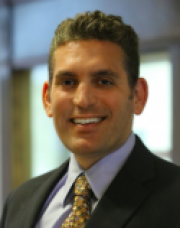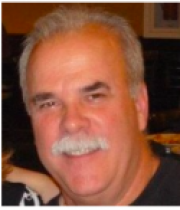Director of Sales for a Provider of Post Acute Care and Consulting Services
Introduction
This Mentor has over ten years of health care experience managing top performing sales teams for large national publicly traded companies. She has managed marketing/business development teams responsible for approximately $80 million in annual revenue. Her markets have included Oklahoma, Missouri, Kansas, Arkansas, Arizona, Illinois and Georgia. She has received a host of awards for outstanding sales performance, leadership and goal attainment. Her responsibilities include, but are not limited to, budgeting, managing special construction projects, strategic planning, oversight of the public relations and communications departments, interaction with patients and service providers and review of reimbursement procedures and processes. In her article she talks about the ways that reimbursement policies for both private insurance companies and government insurance programs like Medicare and Medicaid are driving the health care industry. Knowing these reimbursement policies is important to be able to design an effective program for patients and also to capture the revenue needed to support the company’s operations.
This mentor began to prepare herself in high school not just by getting good grades but also by being involved in things like student government where she could develop leadership skills through managing meetings and speaking in front of groups. When she went to college she thought she wanted to go the pre-med route but quickly found that the sciences were not as enjoyable as she thought they would be so she switched to the Price School of Business and got a BBA in Marketing. During the summer before her senior year, this mentor did a marketing internship with a major league baseball team. After graduation, she worked for an international PR firm. She was then asked to manage a personal estate for a family before getting her first job in the heath care industry. Working in health care gave her the opportunity to help patients just as she desired when she originally started out to go down the medical school path. Her boss at the healthcare company became her mentor and coach encouraging her to move from sales to management.
Her article will be of interest to anyone interested in jobs in the health care field as they are all being influenced by the insurance reimbursement issues she discusses in her article. Her article also describes the stresses on the health care system as the baby boomers get older and the challenges that demographic will create for the types of heath care services her company provides to seniors and people who need rehabilitation after hospitalization.
Overview
When I was in high school I was involved in organizations like the Student Council and Junior and Senior Class Boards. These opportunities gave me early leadership training and applicable experience participating in and running meetings as well as speaking in front of the student body. I also took public speaking in college and became confident and comfortable speaking in front of people. When I was in high school I thought that I wanted to become a doctor and knew that I had to be decent at math and the sciences. While I did well in the sciences in high school, when I got to college I found that the sciences needed for pre-med were difficult for me. After I took zoology and had to do dissections, I didn’t think I could handle the life sciences needed to become a doctor and knew I needed to go in another direction. I naturally gravitated toward thinking about what my grandfather had always told me; that I could sell ice to an Eskimo and that business was something I should pursue. So, I transferred to the Price School of Business at the University of Oklahoma and pursued my BBA in Marketing. During my last few years of college my grandfather fell ill and was able to afford a nurse to care for him during the week while my sister, dad and I took care of him on the weekends. Through this process, I wondered what people did who could not afford that level of care in their homes. I soon found out when I became involved in the health care industry.
Before my senior year of college, I was able to do an internship with a major league baseball team that focused on marketing and raising money for a statue in the plaza of the stadium. After I graduated from college, I was trying to decide what direction I wanted to go in marketing and took an unpaid internship with and international PR firm in Atlanta. If all went will with the internship, there were job offers made, but I quickly decided that working in a PR agency setting was not the right fit for me. I was working after hours during my internship for a family and they asked me to come on full-time with them and manage the family’s personal estate. I did everything from managing the house keeping staff to supervising construction of an underground wine cellar we called the Big Dig.
After two years of managing the estate, I decided to pursue my dream of getting into health care and interviewed with a national healthcare company in Atlanta. I interviewed with a woman who became my new boss and mentor. She took a chance on a little girl from Oklahoma, something that made a big difference in my life. With my new position with the national healthcare company, I was involved in marketing their home health services as a regional salesperson. I worked there for 2 years when there was an opportunity that opened up to do an internal transfer back to Oklahoma. At the time, my sister was expecting her first child and I did not want to miss out. Once I was in Oklahoma, I was in the Tulsa and rural areas as a sales person and then promoted to Area Vice President of Business Development and led a twenty-three person sales team that covered Arkansas, Missouri, Kansas and Oklahoma. I worked for the national healthcare company for over ten years but decided to leave when I was asked to sign a two-year non-compete because the one-year agreement I had in place was being replaced, something I thought was too restrictive. So, I decided to help my husband start a new law practice for a year while my one-year non-compete expired. At the end of that year my mentor, recruited me to come work for her at another national healthcare company. I worked for that company for a year and a half until I had my son. On maternity leave, I was offered a position that required less travel and took a job with my present employer, a post acute care company in February of 2015.
Responsibilities as Director of Sales in Post Acute Care
My company has thirteen facilities in Oklahoma and Texas with over $80 million in annual revenue that we either own or directly manage under a consulting contract. My responsibilities include management of the marketing, PR and communication department, as well as, facility census. In order to keep census up in the facilities, I educate the case managers and social workers in all the surrounding acute care hospitals about our services. I illustrate what insurance we take and the amenities we offer their patients. These include services in facilities that are short-term stays for rehabilitation, skilled nursing, long-term care, assisted living and independent living. Because my company offers the continuum of care, a client can age in place at some of our facilities.
Before a person comes to one of our facilities, a representative of our team meets with them and their family. Many older people have a fear of going to a nursing facility as if these are places where people go to die. It is the vision of our company to educate and assure potential residents and families that we have the kind of facilities and amenities that can help them maintain a good quality of life. Once a client enters our facilities, I become a bridge between them and our case managers and ensure the care transition is done well. I give clients and their family my personal number so they always have someone they know they can call. In order to be competitive with other facilities, we have to ensure that our services provided are as advertised. Our reputation depends on maintaining a high level of service and I like to get involved with the healthcare staff to make sure this happens and correct any problems.
I also have to keep myself familiar with all the various insurance company regulations. For example, one insurance provider only allows us to have a certain number of patients with their insurance in a particular facility and only approves that number of patients for benefits if our resident count remains within their guidelines. If we have a patient that wants to come to our facility that is at their maximum allotted number of patients, we cannot accept that patient.
Additionally, I manage the company’s marketing, communications and PR department where we produce marketing collateral, advertisements, press releases, and newsletters. We also manage our Facebook presence and a website optimization for all facilities.
How Insurance and Demographic Are Affecting Health Care
The baby boomer demographic is having a huge affect on health care. Their large numbers means that as they age there is going to be a shortage of CNAs, CMAs, LPNs and RNs to take care of them as they move through the care continuum. These jobs are hard work and require physical lifting of the patients that these health care workers cannot do as they get older. Health care jobs can be stressful dealing with people who have chronic conditions that are difficult to manage. Because there is so much competition for these health care workers, companies offer signing bonuses to attract staff. It is difficult to retain staff when they have stayed long enough to keep their bonuses, these workers then look for another place to work where they can get another bonus. This means that turnover is high and companies like mine are always looking for ways to attract and retain our licensed employees.
Reimbursement policies by private insurance companies and government programs like Medicare and Medicaid are also having a great influence on health care. For example, there is trend to go to a pay for performance type reimbursement program that focuses on outcome-based care. One the surface this seems like a market based solution to incentivize doctors to provide good care for patients and hospitals to discharge appropriately, but this model is difficult and doesn’t adjust for patient compliance, etc. For example, hospitals get dinged if a patient returns within thirty days of discharge for the same diagnosis. The problem is that often times a patient returns because they were not willing to take their medication or follow the other instructions given to them upon discharge from the hospital. This kind of patient behavior is something the hospital cannot control and is not accounted for in the regulations. Hospitals are being penalized for patient’s non-compliant behavior not poor quality health care in many instances. It is estimated that hospitals will face a 3% reduction in their reimbursement.
There are other programs that can help support our seniors through Medicaid and the Medicaid waiver program, which involves financial assistance for those in need. These programs will pay for nursing care for people with no money financial resources. Additionally, the AdVantage program can help many older people who are currently living in Medicaid nursing homes because they don’t have any resources to pay for assisted living. We have two Assisted Living facilities that have AdVantage certified rooms that the AdVantage program helps pay for monthly. For those eligible for the Medicaid AdVantage program, we assist in the application process. This process takes time and we assist in filling out the forms to get our patients through the process. Those that don’t get the assistance they need can end up in dire situations. We do our best to assist people that we encounter in theses situations.
The post acute care industry expects continued reimbursement cuts for Medicare and Medicaid services scheduled for 2016 that will put further pressure post acute facilities and health care providers as a whole. As a result of reimbursement cuts, a number of doctors have moved to a business model that is private pay or no longer accept certain insurances. Obviously it is a small number of patients who can afford this kind of care and some other solution needs to be found that can balance the problems the doctors are having with regulations and reimbursement levels and the patient’s need for quality care.
How to Prepare for a Career in Healthcare Marketing
- Try to get involved in things like student council and student government in high school. Early experience speaking in front of people, being involved in student organizations and getting good grades can go a long way when it comes to getting into a good college and getting scholarships.
- Getting an undergraduate degree in marketing is important. I have not seen where a graduate degree is necessary to advance in health care marketing.
- Start in some kind of territorial sales position. Your first job doesn’t have to be in the heath care industry. What is important is that it allows you to show someone in the health care industry that you have sales ability and results when you interview for marketing/sales position.
- It is important to have a good knowledge of health insurance reimbursement rates and regulations to be able to market in the health care industry. Another way to start in the industry is to work for a couple years in administration where you are dealing with insurance regulations and billing. Someone who can market and also has detailed knowledge of these regulations will be highly sought after by health care employers.
Summary
My job is rewarding because I get to help clients and also work with great caring people. I also like managing people and being in a leadership position and can work with my staff to produce positive outcomes for our clients. I also like working with clients and their families to see they receive the care that is promised. The greatest vulnerability for our industry is staffing and retention of licensed CNAs, CMAs, LPNs and RNs. In order to provide the care promised we have to have consistent quality care which can occasionally be difficult because these are positions where there is a lot of turnover. This means that at times we get complaints and I sometimes have to serve as a bridge between the client and their family and the case manager who overseas these workers. Although health care marketing can be challenging, there are a lot of rewards knowing that you are helping clients and their families deal with a difficult time in their lives. Heath care marketing is also the kind of job where performance is financially rewarded. It is a marketing career that I would recommend for anyone with sales ability.
US Bureau of Labor Statistics for Marketing Managers
Being a director of Sales for a company is equivalent to being what the BLS classifies as a Marketing Manager. The BLS says a Marketing Manager is one who plans, directs, or coordinates marketing policies and programs, such as determining the demand for products and services offered by a firm and its competitors, and identifies potential customers. Marketing managers also develop pricing strategies with the goal of maximizing the firm’s profits or share of the market while ensuring the firm’s customers are satisfied. They also oversee product development or monitor trends that indicate the need for new products and services.
Pay
Salaries for marketing managers vary widely depending on the size of the company and the industry. But because this position is responsible for generating a company’s revenue, pay is higher then average for many other corporate positions. The BLS study in May of 2014 showed median pay for all company marketing managers was $127, 130 with the top 10% earning over $171,390 and the lowest 10% earning $65,980.







